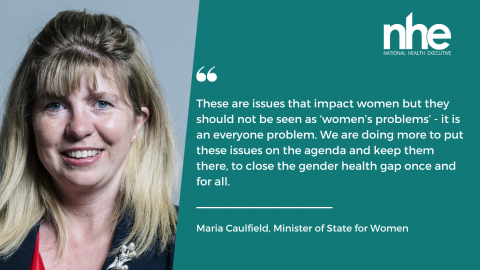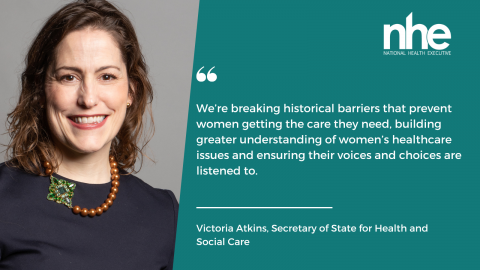Victoria Atkins has laid out the government’s priorities for women’s health in 2024, including research, maternity and inequalities.
Speaking at the women’s health summit in London, Atkins outlined a five-point plan which included:
- Bolstering maternity care
- Improving care for menstrual conditions
- Expanding women’s health hubs
- Tackling inequalities and disparities
- Enabling more research
The first priority will be supported by the continued delivery NHS England’s three-year plan for maternity and neonatal services, as well as ensuring women understand how they will be cared for during and after their pregnancy. Theo Clarke, the MP for Stafford, is leading an inquiry into birth trauma.
More attention will be placed on preconception and postnatal care too, raising awareness for morning sickness and progressing the recommendations set out in the pregnancy loss review.
The Department of Health and Social Care will improve care for menstrual and gynaecological conditions with women’s health hubs, new guidance for healthcare professionals, and better information and support for painful periods and endometriosis.

Part of this work includes an Office for National Statistics investigation into how periods and endometriosis impact women’s participation and progress at work.
Women’s health hubs will be expanded by delivering on the £25m investment pledge outlined in spring last year. The government is aiming for one fully operational hub in every local area this year.
Disparities will be addressed through further support for vulnerable women, including victims of sexual abuse and violence. New models will be created within the NHS as part of this to protect staff.
Meanwhile, actioning the recommendations in the national women’s prison health and social care review will improve the health of women in the justice system.
Research into women’s health will be levelled up via a first ever research challenge. Worth £50m through the National Institute for Health and Care Research, the fund will focus on maternity care.
A call to research teams will go out this spring and, by autumn, they will be innovating according to the health secretary.

The NIHR’s five-year equality, diversity and inclusion strategy will continue to improve how women are represented in research as well.
The 2024 priorities were developed using the responses from the women’s health strategy call for evidence. The call received over 100,000 responses from healthcare professionals, women’s health champions, members of the public and others.
Victoria Atkins also announced the reappointment of England’s ambassador for women’s health, Professor Dame Lesley Regan, for another two years.
“Our Women’s Health Strategy is ambitious,” said Prof Regan.
“It was created to ensure our healthcare system places women’s health on an equal footing to men. I want women everywhere to feel confident that when they seek advice from their healthcare professional, whether it’s for heavy or painful periods or issues following birth, they know they are going to receive world-class treatment.”
She continued: “This is the ultimate goal of the strategy, and I am delighted that we have made such positive progress in the first year and generated so much enthusiastic help to succeed. This coming year offers us the opportunity of taking further steps forward in delivering better healthcare outcomes for every woman in our society.”
The women’s health minister, Maria Caulfield, added: “We’ve made enormous strides in the first year of the strategy and I’m excited to see what 2024 will bring.”
Image credit: iStock



















